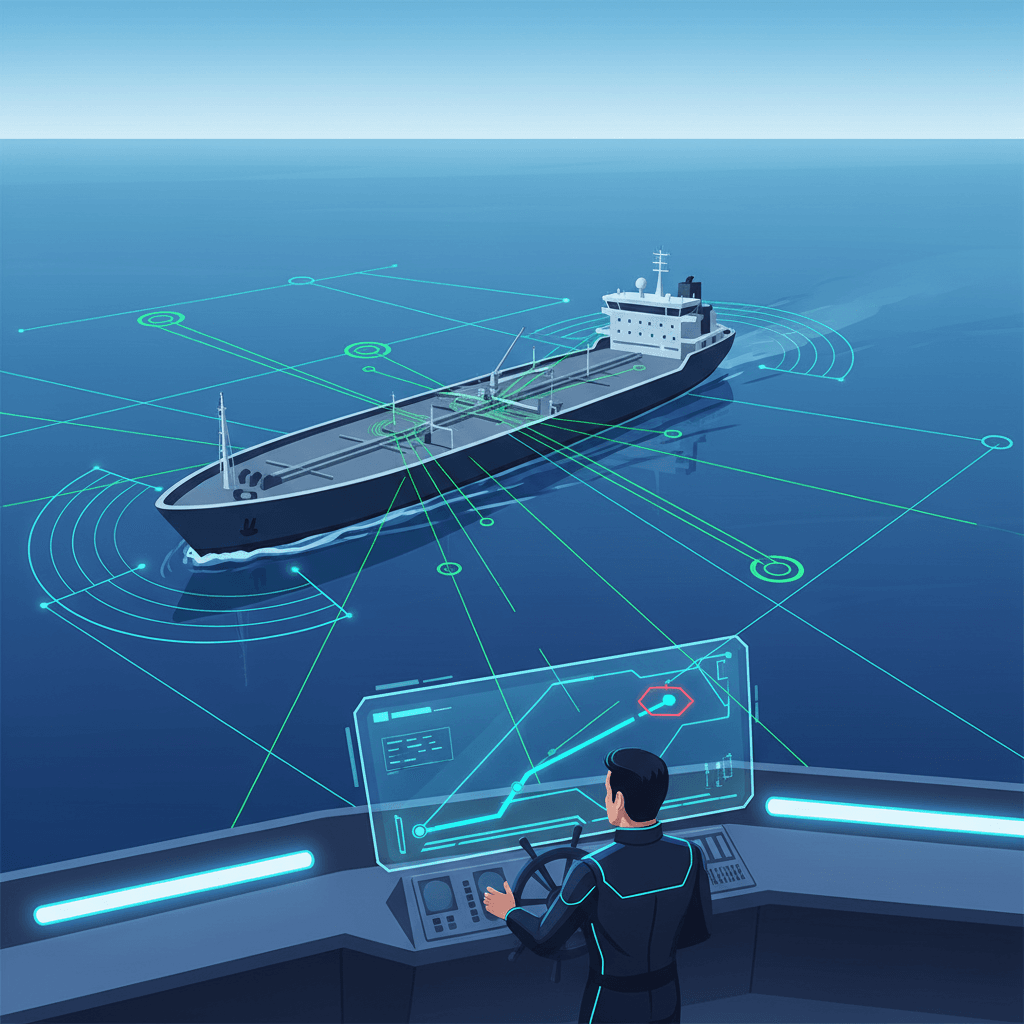Mythos AI's Radar-First AI Enhances Tanker Safety in Landmark Trial
Mythos AI deploys its "radar-first" APAS on a commercial tanker, launching a year-long trial for safer, smarter navigation.
September 15, 2025

In a significant step forward for the application of artificial intelligence in the maritime industry, American technology firm Mythos AI has deployed its Advanced Pilot Assistance System (APAS) on the chemical tanker CB Pacific. This installation, a collaboration with lomarlabs, the venture arm of Lomar Shipping, marks the beginning of a year-long trial of the AI-driven navigation technology.[1][2] The project aims to enhance onboard safety and operational efficiency by providing the crew with advanced decision-making tools, rather than replacing them.[3] This real-world application of sophisticated AI on a commercial vessel represents a critical milestone in the journey towards smarter, safer, and more efficient ocean transport.
At the heart of this initiative is Mythos AI's innovative APAS, a system distinguished by its "radar-first" approach to perception.[4][5] Unlike many autonomous navigation systems that heavily rely on machine vision, APAS is designed to integrate directly with a ship's existing radar infrastructure.[1][3] This allows it to process multiple streams of data and provide a single, prioritized alert to the bridge crew, effectively cutting through the noise of complex maritime environments.[1][5] By combining its proprietary radar perception with machine vision and intelligent alerting, the system transforms intricate situations into clear, actionable decisions.[3] The goal is to reduce distractions for mariners, improve situational awareness, and ultimately lead to better and safer navigation.[2][3] The CB Pacific, a vessel managed by CB Tankers, was selected as the ideal testbed for this technology due to its stable routing and existing Furuno radar setup.[1][2]
This deployment is more than just a technological trial; it is a strategic partnership designed to accelerate the maturation of maritime AI.[2] Lomarlabs, which provides early-stage tech companies with infrastructure, industry expertise, and funding, is offering crucial vessel access and technical oversight for the project.[2][6] This collaboration allows Mythos AI to capture and retain the expertise of master mariners and the navigational norms of ports worldwide, which will be invaluable for refining the system's algorithms.[1][3] The year-long trial will rigorously test the APAS in live operational settings, evaluating its performance in critical areas such as signal processing, collision prediction, and compliance with international maritime navigation rules (COLREGs).[1][2] The hands-on approach of lomarlabs, which emphasizes real-world operations over theoretical concepts, is seen as a key enabler for bringing innovations like APAS to market.[1][4]
The implications of this sea trial extend far beyond the single vessel. The successful validation of the APAS at scale could lay the groundwork for broader, fleet-wide adoption and has the potential to influence the future of maritime navigation. For the AI industry, this project demonstrates a tangible application of complex algorithms to solve real-world problems in a traditionally conservative sector. By focusing on assisting and augmenting the capabilities of human crews, Mythos AI is charting a pragmatic course for the integration of artificial intelligence in critical operations.[3] The project also supports Mythos AI's commercial roadmap, which has seen growing interest from both the commercial shipping and defense sectors.[2][4] As the maritime industry continues to explore avenues for enhanced safety, efficiency, and decarbonization, AI-powered systems like APAS are poised to play an increasingly vital role.
In conclusion, the deployment of Mythos AI's Advanced Pilot Assistance System on the CB Pacific is a landmark event in the evolution of maritime technology. The year-long trial, supported by the strategic partnership with lomarlabs, will provide invaluable data on the performance and practical benefits of a radar-first AI navigation system.[1] This initiative not only has the potential to significantly enhance the safety and operational resilience of maritime transport but also serves as a compelling case study for the successful integration of artificial intelligence into complex, real-world industrial environments. The outcomes of this trial will be closely watched by the maritime and AI industries alike as a bellwether for the future of intelligent shipping.